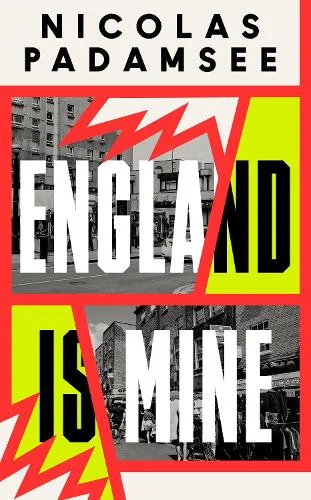As we celebrate St.George’s Day next week, we have been reflecting on this country of ours through some great books. Here is a selection of books about England and being English.
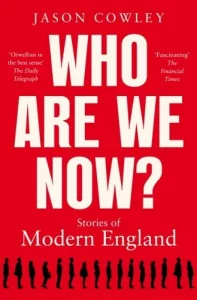
Who Are We Now? – Jason Cowley
Jason Cowley, editor-in-chief of the New Statesman, examines contemporary England through a handful of the key news stories from recent times to reveal what they tell us about the state of the nation and to answer the question Who Are We Now?
Spanning the years since the election of Tony Blair’s New Labour government to the aftermath of the Covid pandemic, the book investigates how England has changed and how those changes have affected us. Cowley weaves together the seemingly disparate stories of the Chinese cockle-pickers who drowned in Morecambe Bay, the East End Imam who was tested during a summer of terror, the pensioner who campaigned against the closure of her GP’s surgery and Gareth Southgate’s transformation of English football culture. And in doing so, Cowley shows the common threads that unite them, whether it is attitudes to class, nation, identity, belonging, immigration, or religion.
He also examines the so-called Brexit murder in Harlow, the haunting repatriation of the fallen in the Iraq and Afghan wars through Wootton Bassett, the Lancashire woman who took on Gordon Brown, and the flight of the Bethnal Green girls to Islamic State, fleshing out the headlines with the very human stories behind them.
Through these vivid and often moving stories, Cowley offers a clear and compassionate analysis of how and why England became so divided and the United Kingdom so fragmented, and how we got to this cultural and political crossroads. Most importantly, he also shows us the many ways in which there is genuine hope for the future.
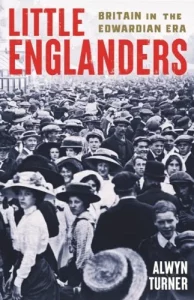
Little Englanders – Alwyn Turner
When Queen Victoria died in 1901 it was the end of an era. Britain’s dominance stretched across seven continents and its ruling classes were wealthier than ever before.
Many later remembered the decade or so that followed as the long afternoon of an empire where the sun never set. Yet the Edwardians themselves were acutely aware that the country was in a state of flux; the seismic change that they felt would transform modern Britain forever.
In Little Englanders, Alwyn Turner reconsiders the Edwardian era as a time of profound social change, with the rise of women’s suffrage and the labour movement, unrest in Ireland and the Boer republics, scandals in parliament and culture wars at home. He tells the story of the Edwardians through music halls and male beauty contests, the real Peaky Blinders and the 1908 Summer Olympics.
In this colourful, detailed and hugely entertaining social history, Turner shows that, though the golden Victorian age was in the past, the birth of modern Britain was only just beginning.
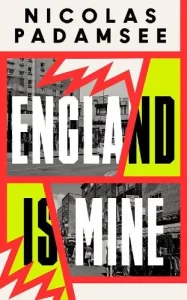
England is Mine – Nicolas Padamsee
David hates school, where he has been bullied, and has reached sixth form without any friends. Music is the only thing that keeps him going. Inspired by his hero, Karl Williams, he becomes vegan, wears eyeliner and writes song lyrics. But one night onstage Karl Williams accuses Muslims of homophobia and is cancelled. Conflicted by his feelings for his favourite artist and compelled by the conversations he has while playing Call of Duty, David becomes more and more fascinated by the far right’s narratives of masculinity in conflict with liberal society.
Living in the same East London borough as David, Hassan has his own problems. He is drifting apart from his childhood friends, Mo and Ibrahim, who drink, blaze skunk and mock him for hanging out at the Muslim youth centre, where he is older than everyone else. Determined to make something of himself, he volunteers for his local mosque and works hard to try to get the grades he needs to go to university.
As these second-generation immigrants struggle for a sense of identity and belonging – amid a wave of online radicalisation and extremism – their fates become inextricably, catastrophically entwined.
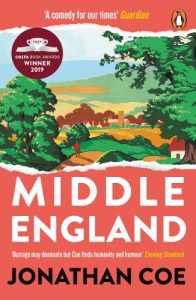
Set in the Midlands and London over the last eight years, Jonathan Coe follows a brilliantly vivid cast of characters through a time of immense change and disruption in Britain.
There are the early married years of Sophie and Ian who disagree about the future of Britain and, possibly, the future of their relationship.
Sophie’s grandfather whose final act is to send a postal vote for the European referendum.
Doug, the political commentator, whose young daughter despairs of his lack of political nous and Doug’s Remaining Tory politician partner who is savaged by the crazed trolls of Twitter.
And within all these lives is the story of England itself: a story of nostalgia and irony; of friendship and rage, humour and intense bewilderment.
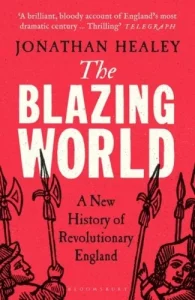
The Blazing World – Jonathan Healey
The seventeenth century began as the English found themselves ruled by a Scotsman, and ended in the shadow of a Dutch invasion. Midway through, society collapsed into a civil war, followed by army coup and regicide.
For a short time – for the only time in history – England was a republic. In coffee shops and alehouses, ordinary people fizzed with ideas that were angry, populist and almost impossible to control.
Despite these radical changes, few today fully understand the story of this revolutionary age. Leaders like Oliver Cromwell, Charles II and William of Orange have been reduced to caricatures, while major turning points like the Civil War and the Glorious Revolution are shrouded in myth.
Yet, as Jonathan Healey argues, the period has never been more relevant. From raw politics to religious divisions, civil wars to witch trials, plague to press freedoms, The Blazing World tells the story of this strange but fascinating century in exuberant, panoramic detail.
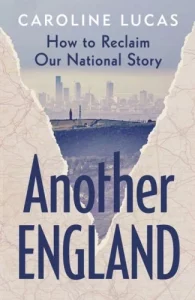
Another England – Caroline Lucas
The right have hijacked Englishness. Can it be reclaimed?
With the UK more divided than ever, England has re-emerged as a potent force in our culture and politics. But today the dominant story told about our country serves solely the interests of the right. The only people who dare speak of Englishness are cheerleaders for Brexit, exceptionalism and imperial nostalgia.
Yet there are other stories, equally compelling, about who we are: about the English people’s radical inclusivity, their deep-rooted commitment to the natural world, their long struggle to win rights for all. These stories put the Chartists, the Diggers and the Suffragettes in their rightful place alongside Nelson and Churchill. They draw on the medieval writers and Romantic poets who reflect a more sustainable relationship with the natural world. And they include the diverse voices exploring our shared challenges of identity and equality today.
Here, Caroline Lucas delves into our literary heritage to explore what it can teach us about the most pressing issues of our time: whether the toxic legacy of Empire, the struggle for constitutional reform, or the accelerating climate emergency. And she sketches out an alternative Englishness: one that we can all embrace to build a greener, fairer future.
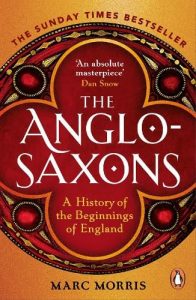
The Anglo-Saxons – Marc Morris
Sixteen hundred years ago Britain left the Roman Empire and swiftly fell into ruin. Into this violent and unstable world came foreign invaders from across the sea, and established themselves as its new masters.
In this sweeping and original history, renowned historian Marc Morris separates the truth from the legend and tells the extraordinary story of how the foundations of England were laid.
